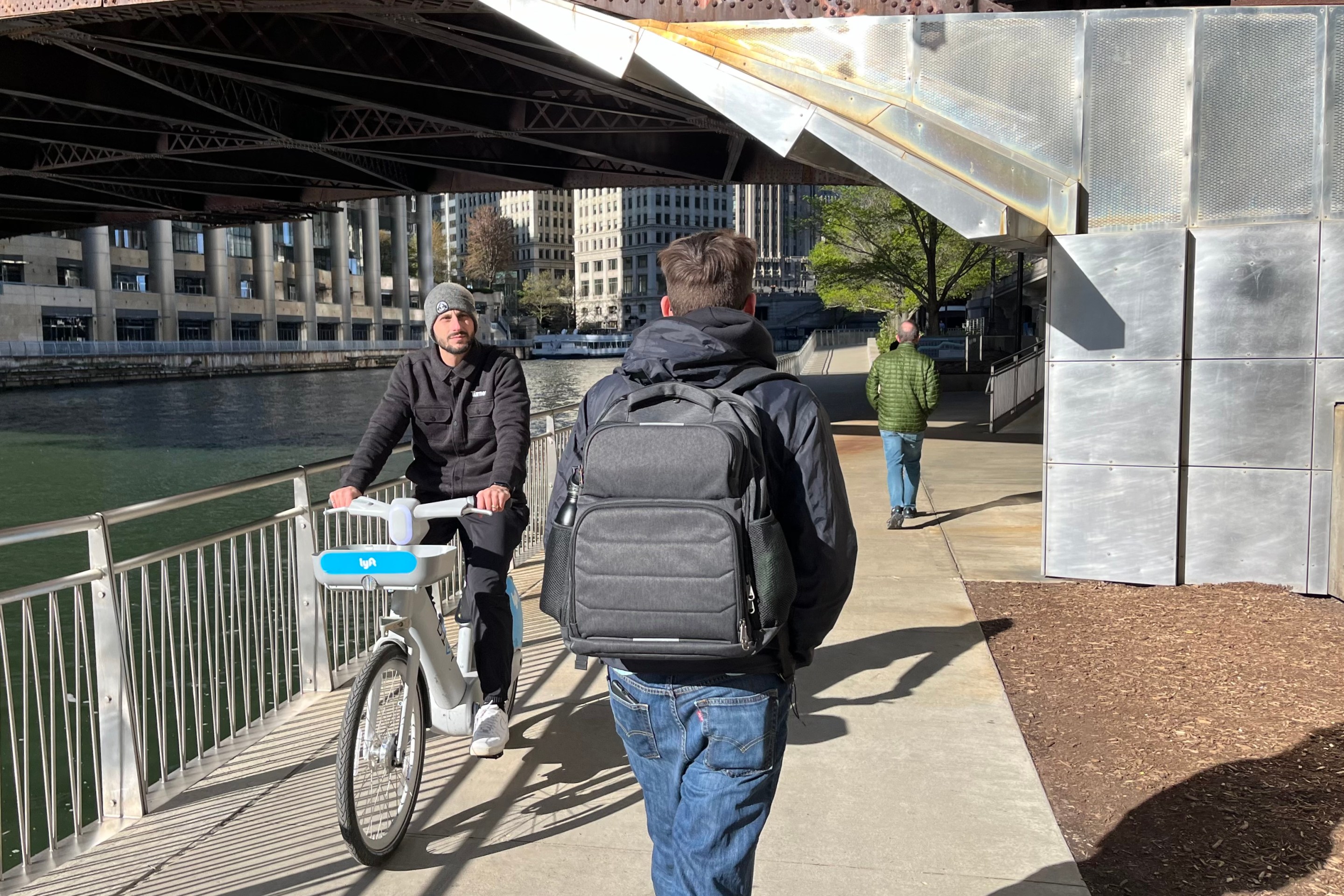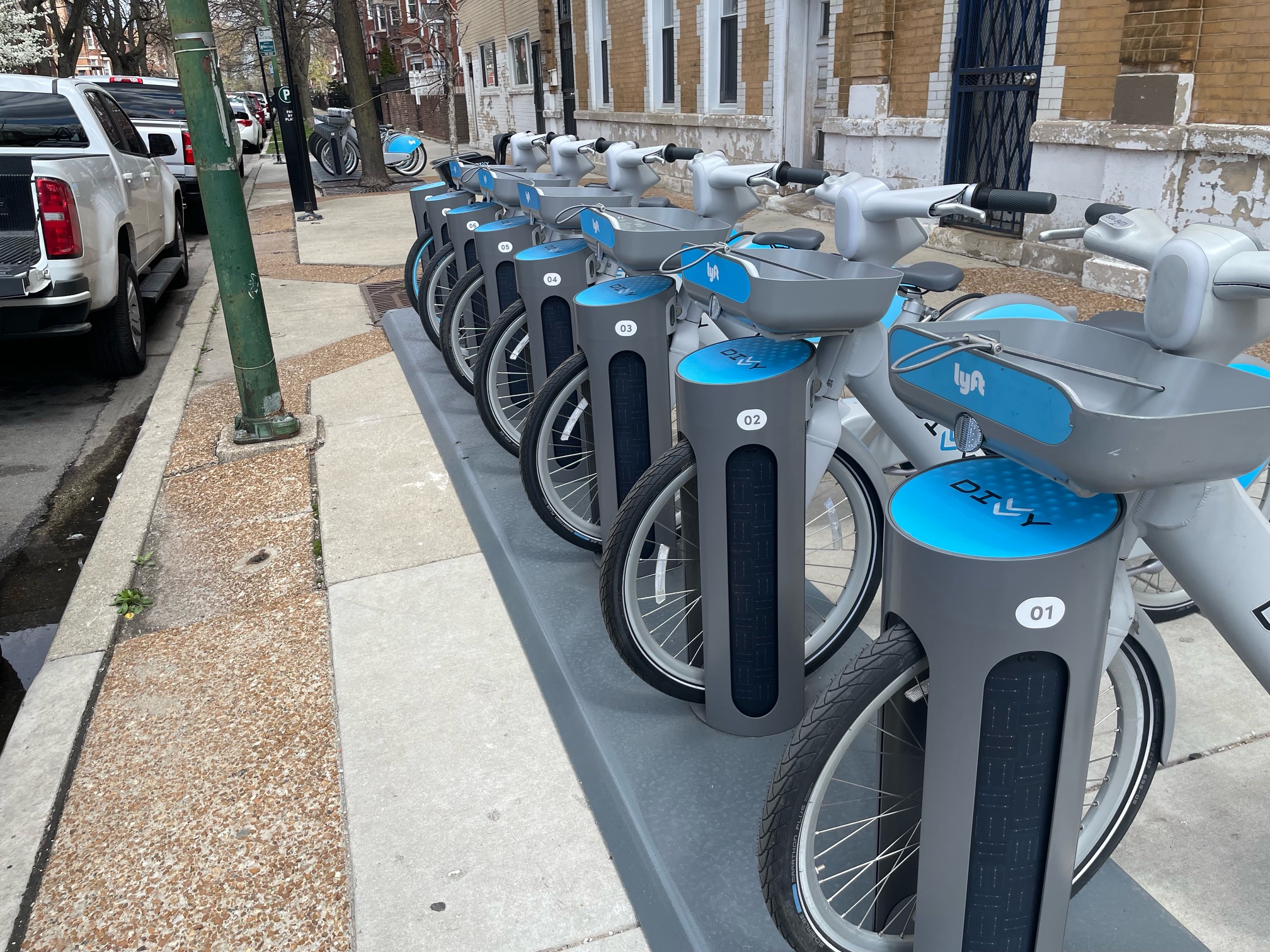Today, the Chicago Transit Authority cheerfully tweeted that their proposed 2016 budget calls for no fare hikes or service cuts, plus some improvements in service. That sounds good in principle, but there are a few reasons why not raising fares next year is actually a bad idea.
Mayor Rahm Emanuel will announce the new CTA budget recommendations [PDF] at 1:45 p.m. today, at the Blue Line's Addison station. He'll likely say that the CTA is avoiding a fare hike in order to support working families. At the same time, he'll probably note that the transit agency will still be completing new projects next year, such as the Addison stop rehab, which will make the station wheelchair accessible.
The proposed budget is lean, but it's far from draconian. It eliminates 100 "non-critical" staffed and unfilled positions, but it also provides funding for the return of two peak-only express bus routes, the X49 on Western Avenue and the X9 on Ashland Avenue.
Most straphangers will be pleased by the news that fares aren't going up next year. However, it makes more sense to gradually raise fares every year, rather than implementing big hikes every three-to-five years, as has been the CTA's habit.
The costs of running the system are constantly in flux, and the CTA has generally been good in the last 10 years at managing those costs, especially labor. But in its quest to keep fares low year after year, the agency may be laying off good employees and not providing the best possible service.
It's important for the CTA to adjust the amount of money it takes in and spends as needed to improve buses and train service as ridership grows. The agency has only gotten better at controlling expenses. Revenues outside of tax support are mostly limited to fares, which currently make up 86 percent of its revenue stream. Moreover, farebox income is the revenue source with the greatest potential for gains.
Instead, none of the CTA's prices would change next year. The "base fare," which includes the $2.00 (bus) or $2.25 (train) single-ride ticket plus $0.25 transfers, was last raised in 2009. But the price of transit passes, which the CTA refers to as a "discounted fare," went up dramatically in 2013. At the time, Emanuel argued that "fares stayed the same" because the base fare didn't change, and said that driving was an alternative, despite fluctuating gas prices.
In one sense, hiking pass prices while keeping the bases fare the same still hurt low-income riders. It made passes, which provide a discount, less affordable. Many Chicagoans are unable to put down $28 at one time for a pass, so they instead pay each time they use the sytem, and end up paying more for trips that week. Low-income riders paying cash without a Ventra card pay an even higher fare on CTA trains.
Another problem resulting from keeping the lid on fare increases is that the CTA could end up freezing wages again, turning their non-contracted management staff into piggy banks by failing to give them raises. That could hurt productivity and make it hard to retain the best employees. Contracted workers, which typically means bus and train operators, and maintenance staff, can have similar problems: smaller raises, or higher contributions to pensions and healthcare.
The biggest problem with holding the line on CTA fare increases is that it leads to an underfunded system. I've reported in the past how far Chicagoland transit funding has fallen behind other regions around the country. A new blog post by the Metropolitan Planning Council's Yonah Freemark highlights the massive discrepancy between Chicago and New York City transit funding.
As it stands, the CTA, Metra and Pace don't have enough funding to provide the service Chicagoland residents want and need. This includes reliable buses, and trains that don't force commuters to pack in like sardines.
How much money Chicago and the state of Illinois should be contributing to regional transit service is an ongoing issue. Until it's resolved the CTA has few options – fare increases being one – to meet the needs of its riders.
But, as Jon Hilkevitch explains in the Tribune, there's currently a more pressing problem:
The governor and lawmakers in Springfield have not agreed on a 2016 budget and the state still owes the CTA $221 million in capital-improvement funding that was expected in 2015, transit officials said.
The CTA is also counting on Governor Bruce Rauner to restore the funding that subsidizes free and reduced fares for seniors, military members, low-income people, and riders with disabilities, Hilkevitch reported. But as long as there's a budget crisis on the state level, the CTA's funding future looks to be anything but a smooth ride.



